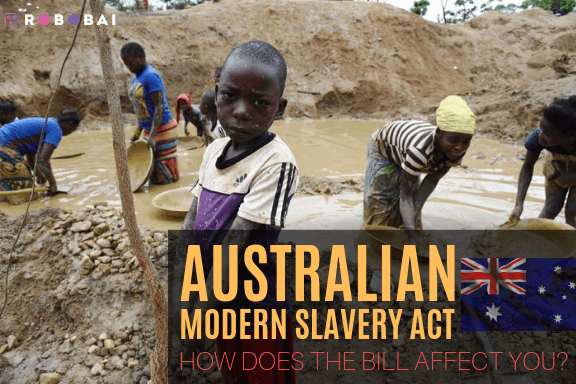Modern Slavery Red Flags
Avoid suppliers that exhibit these traits. Modern slavery is thriving as it hides behind the suppliers of the items we use every day. The products...
13-years-old and some younger, spending their lives sifting through the stones looking for cobalt in the Democratic Republic of the Congo. Down the hand dug mines, children as young as seven are subject to modern slavery working to extract cobalt: the key component of a lithium-ion battery – those which power your smart phone or electric car. Amnesty international is accusing major tech companies of not doing enough to clamp down on underage labor in their supply chain – which has boomed alongside the demand of the consumer.
In 2014, around 40,000 children worked in mines across the DRC and a reported 80 people die down these mines annually. DRC is responsible for the supply of at least 50% of the world’s cobalt; the large majority of this rare metal is supplied to Chinese battery manufacturers. Just one of the ways child-labor Cobalt is mixed into the supply chain. At present, Cobalt does not fall under the existing conflict minerals rules in the United States, thus companies are not required to disclose how the source these minerals.
An army of children are at the heart of the mining production in the DRC, working bare foot (often in heavy rainfall) children are beaten for not hitting their daily cobalt quotas. They are forced to work from early morning through late into the evenings digging and sifting through stones, without the guarantee of food and water. Often these children work days without being fed. These children are directly responsible for making millions of dollars of profits for multinational corporations in the United States and China whilst they suffer in squalor, receiving an equivalent of just 14 Australian cents a day.
The children are required to dig tunnels by hand with no support which frequently collapses – especially in heavy rainfall. Rock is mined by thousands manually and the Cobalt is then sifted out by tiny hands. The children are not provided gloves or masks, even though the World Health Organisation (WHO) says exposure to Cobalt and breathing in cobalt dust fumes cause serious long term health problems.
Across the DRC there are hundreds of mines, all active in child labour; some are as young as 4 years old sifting through the material extracted from the mines to find Cobalt. To think there is an estimated 40,000 workers receiving 14 cents a day that cost would equate to the annual gross sales revenue of 2,050 iPhones. A shocking comparison when child workers have lost their lives to the mining of one of the most sought after minerals of our time.
To think that any product category that has the component Cobalt will surely be directly supporting child-labour within a company’s supply chain is a worrying thought – to consider the whole supply chain and all product categories it is clear that immediate action is required to stamp out modern day slavery altogether.

I recently asked a large Australian company whether they thought modern slavery was a risk in their supply chain.
Their response: “No. We only manufacture in first world countries.” This response, broadly accepted by Australian businesses, not only reflects a lack of understanding but also an unrealistic assumption that “west is best”. It also suggests that companies can “tick the supplier risk assessment box” by looking at their first-tier suppliers only (i.e. those who supply directly to them.) It is well known that modern slavery risk is more likely to be found the further down the supply chain you go, and in some ways, you could be avoiding more risk by starting at the ‘bottom’ of the supply chain as opposed to the top.
The Commonwealth Modern Slavery Act requires companies with consolidated revenue over $100M to prepare an annual Modern Slavery Statement which includes “the organisation’s structure, its operations and its supply chains; the risks present in its operation and supply chain, its policies and processes to address slavery and their effectiveness; its due diligence processes in relation to slavery in its operations and supply chains and their effectiveness.”
While this is a new requirement for many businesses, it is not a new venture. Many businesses, consultants, NGOs and service providers have been working to eradicate slavery and supplier slavery risk, human trafficking and other human rights issues for many years. Tools, resources and education programs exist to guide Australian businesses to meet legislative requirements and move beyond compliance. The slavery statement is the starting point only .
Your company is no doubt already slavery risk across your operations and possibly your slavery (think quality, WHS, bribery & corruption). Integrating modern slavery and human rights risk assessments into existing risk and due diligence processes and involving a cross section of staff will ensure effective measures are put in place to identify, manage and mitigate these risks.
Modern slavery risks cannot be addressed through a yes/no culture. This will only reduce transparency and push issues further down the supply chain as suppliers seek to conceal risks so they don’t lose their contracts. Businesses need to make a commitment to long-term relationships with suppliers and support continuous improvement wherever possible.
Sonja Duncan is the Director of SD Strategies, a research associate with the Australian Human Rights Institute and the Migrant Worker Justice Initiative and a partner in the End Slavery Solutions partnership with law firm Mills Oakley and modern slavery expert Jenny Stanger. She can be contacted at sonja@sdstrategies.com.au
Australia’s Modern Slavery Act is a landmark event, not just for Australia, but for the world. I was fortunate enough to play a supporting role in the passion of the California Transparency in Supply Chains Act, which became a model for the UK Modern Slavery Act. Mapping and mitigating social risks, like slavery, in supply chains is not a vitamin for companies, its medicine. A company’s health and wealth are increasingly being determined by its ability to leverage its procurement power to protect its corporate values. The Australia MSA measures companies on their effectiveness to monitor slavery in their supply chains. Our partnership with RobobAI offers companies of any size an efficient solution to comply with the MSA, by identifying potential risks right through the supply chain.
Justin Dillon CEO of FRDM

To identify modern day slavery risks in your supply chain, RobobAI have developed a modern slavery risk app within our suite of products. So you have all your strategic sourcing information at your fingertips in one place. The dashboard is powered by FDRM based in California. RobobAI connect the analytics of our customer data with the FDRM database and visualise modern slavery categories and suppliers as high, medium and low risks all within the RobobAI platform, and we advise the key risk drivers for each.
The biggest challenge is to identify your supply chain risk profile, its part of the new legislation, what categories and which suppliers are most at risk. This is all supported through connecting accurate customer classified data with multiple best of breed data sources and visualise within the RobobAI strategic sourcing platform. Identification of slavery risk in the supply chain is a key reporting requirement in the recent modern slavery act passed in Australia during Nov-2018, and is the first step to managing your supply chain risk.
For more information or to request a demo, please contact 0404700326

Avoid suppliers that exhibit these traits. Modern slavery is thriving as it hides behind the suppliers of the items we use every day. The products...

Ignorance is no defense against regulatory reporting demands Modern slavery can be closer to home than many businesses and consumers imagine. No one...

There are more people suffering from slavery today than any other time in history. Even though slavery is illegal in today’s society, it is thriving...
